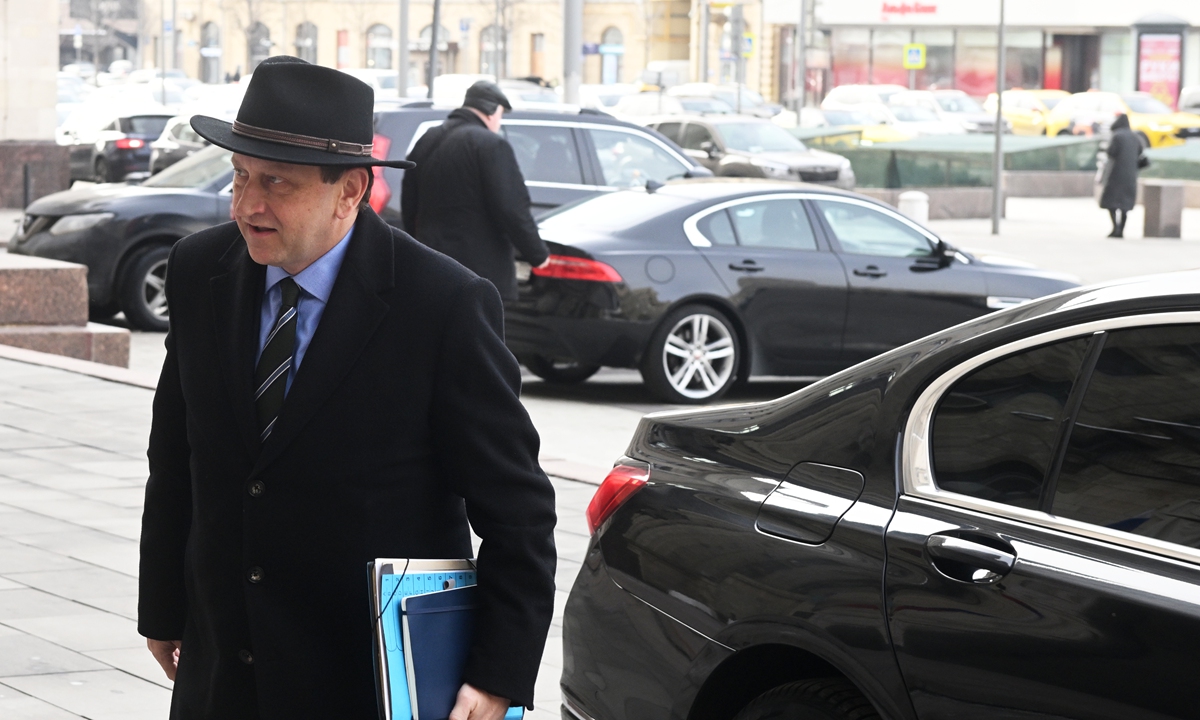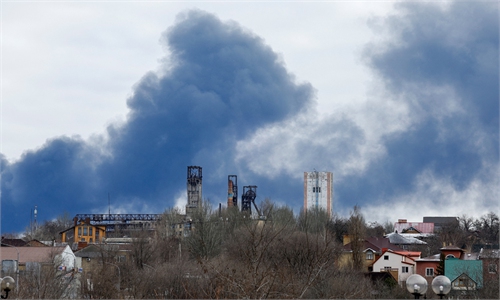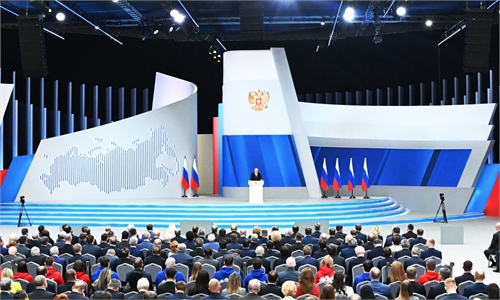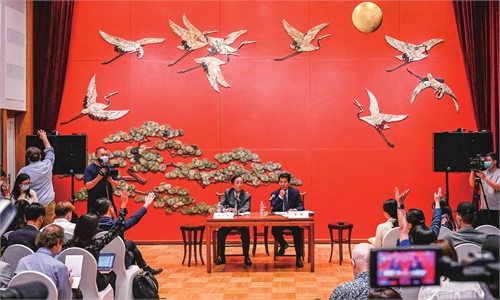
The German ambassador to Russia, Alexander Graf Lambsdorff, is seen at the Russian Foreign Ministry in Moscow on March 4, 2024. Photo: VCG
Russia and Germany have recently been stuck in "eavesdropping" dispute over an audio recording of a meeting of senior German military officials. If it is confirmed that German military officers were involved in the attack on a bridge in Crimea, or even if it is proven that German officers trained Ukrainian missile forces, it would pose great pressure on Germany, experts warned on Monday.
Russia's foreign ministry summoned the German ambassador on Monday, the TASS news agency reported, citing an unidentified source, after Russian media published an audio recording of a meeting of senior German military officials.
Russian media on Friday published a 38-minute recording of a call in which German officers were heard discussing weapons for Ukraine and a potential strike by Kiev on a bridge in Crimea, and how to clear Germany of direct involvement in the conflict.
The recording includes a detailed discussion of how the German military can technically support the supply of Taurus cruise missiles to Ukraine in the event of a decision by German Chancellor Olaf Scholz to allow them to be sent. The discussion also addressed whether Ukraine could carry out the strike without the involvement of German armed forces.
Mao Ning, a spokesperson for the Chinese Foreign Ministry, said on Monday that China's position on the Ukraine crisis is consistent and clear. It is hoped that all parties will be committed to a political settlement of the crisis and work together to ease the situation, Mao said.
If the recording is confirmed to be fact, which means it offers clear evidence of the direct involvement of Germany in the conflict, it will certainly result in an escalation of the Russia-Ukraine conflict, Cui Heng, a scholar from the China National Institute for SCO International Exchange and Judicial Cooperation, told the Global Times on Monday.
On Saturday, Germany called it "an apparent act of eavesdropping" and said it was investigating. "The incident is much more than just the interception and publication of a conversation …" German Defence Minister Boris Pistorius said on Sunday. "It is a hybrid disinformation attack. It is about division. It is about undermining our unity."
Participants in the call discussed the possible delivery of Taurus cruise missiles to Kiev, which Chancellor Olaf Scholz has publicly so far firmly rejected. They also talk about the training of Ukrainian soldiers, and possible military targets, according to Reuters.
Cui believed that Germany could also firmly reject audio recording as it will not be willing to engage in any direct conflict with Russia. Escalating the conflict to direct confrontation with Russia also doesn't conform to the interests of the US and the West, Cui noted.
Analysts believed that it could refer to the previous attack on the Nord Stream 2 pipeline and judge the reactions of the parties involved in the incident. Both the UK and Norway vehemently denied any involvement in the attack on the pipeline and blamed it all on Ukraine, not wanting to be further involved in the matter.



